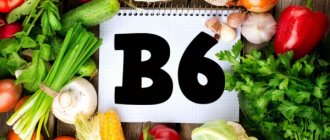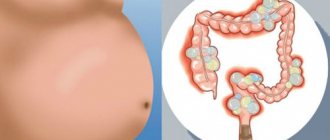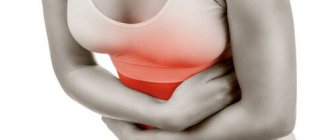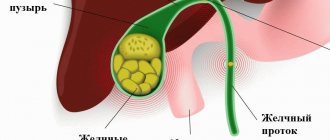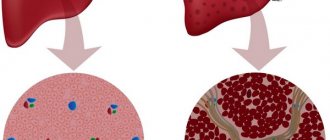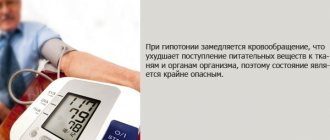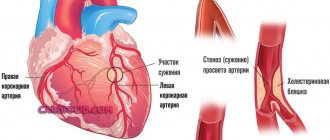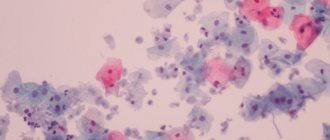Flatulence, or bloating, usually accompanies poor functionality of the pancreas and biliary system. In this case, not enough enzymes are released for active digestion of food in the small intestine.
Poorly digested food irritates the intestines and begins to ferment. This is where all the unpleasant sensations that bother the patient come from. Therefore, patients are recommended to take various medications or folk remedies aimed at eliminating the problem. It is also extremely important to monitor your diet and eat foods that reduce gas formation.
The need to follow a diet
Nutrition correction is an important element in the treatment of all gastrointestinal diseases. A swollen belly is a reason to reconsider your menu. Your doctor will tell you how to eat properly. It is best to consult a gastroenterologist. He will also explain why you need to adhere to certain nutritional rules.
- The diet allows you to relieve the gastrointestinal tract from unnecessary stress. All organs begin to function properly after proper rest.
- A gentle diet helps regulate the functioning of the digestive glands. This helps to establish the secretion of necessary enzymes.
- A properly formulated diet has a beneficial effect on the ability of the intestines to contract. Normal peristalsis ensures the movement of digested food.
- A number of products stimulate the development of beneficial microflora in the intestines. This serves as a prevention against dysbacteriosis, a common cause of flatulence.
When signs of bloating appear, it is important to change your diet. Some products are prohibited for consumption. Some dishes, on the contrary, have a positive effect. Before limiting yourself in food, you need to consult a specialist. It is important to exclude other pathologies of the digestive system that may require drug treatment.
What foods are allowed to be eaten?
The importance of a diet against flatulence is difficult to overestimate. The basic principle of nutrition is the exclusion of foods that contribute to increased gas formation in the intestines. At the same time, the diet must still meet the energy needs of a person.
Gastroenterologists recommend eating light foods. The basis of the diet for bloating can be poultry fillet. It is better to choose turkey; this meat contains a minimum of fat and is considered dietary. Chicken is also not prohibited, provided that the breast is consumed.
Of the different types of meat, it is better to give preference to beef or veal. You can safely cook rabbit meat. White fish is allowed for almost everyone. This is a universal source of protein for gastrointestinal pathologies.
It is useful to eat light vegetable soups as first courses. This menu item cannot be excluded. Liquid food is necessary for normal intestinal motility. You can make soups with chicken or meatballs.
If you are worried about bloating, then you need to choose foods for side dishes especially carefully. Some grains or vegetables can be dangerous. From cereals, you can safely eat rice or buckwheat. Such side dishes will not cause flatulence and will not aggravate the situation with bloating. Vegetable stews are also healthy. They may include zucchini, eggplant, and carrots.
Fruits are also necessary for the body. They are a source of natural vitamins and antioxidants. Gastroenterologists recommend consuming the following:
Fermented milk products are an important element of the diet. Kefir should definitely be included in the daily menu of a person suffering from bloating. Yoghurts that do not contain additives are also beneficial.
There are not many restrictions on drinks. Black tea, coffee, fruit juices or fruit drinks are allowed. Regular drinking water is also useful.
How long to wait until the result
You will have to stick to this diet for several months, but the results are worth it:
- the symptoms of flatulence will no longer bother you;
- heartburn and belching will disappear;
- the proper functioning of the gastrointestinal tract will improve;
- Weight loss is probably the most pleasant bonus for those who want to get rid of excess fat.
It is possible that enzyme metabolism will also improve. Indeed, according to some doctors, our body is physiologically characterized by a rather monotonous diet, in which the endocrine glands produce enzymes of a certain type. With frequent dietary changes, these glands are forced to reconfigure each time, because different enzymes are needed to process different nutrients. For vegetables - one, for meat - another, etc.
And among folk healers and herbalists there is a belief that the most beneficial foods for humans are those that grow within a radius of about 100 km from our permanent place of residence, provided that the person was born and raised in the same place. In simple terms, this means that a carrot grown in a neighboring field will be several times more useful than a banana grown far away.
From what we eat, our body builds, brick by brick, all organs and systems. And the more responsible you approach the issue of nutrition, the better the body will cope with its task. After all, the human body is not a jar of saline where organs float by themselves; everything here is interconnected. Therefore, a balanced diet will do a good service not only to the digestive system, but also to the entire body. Eat right and be healthy!
Foods to help get rid of bloating
Some foods help relieve bloating. They must be included in the menu for flatulence. The easiest way to get rid of the problem is to drink a glass of water with lemon. You can add a teaspoon of honey to the drink.
Sunflower seeds also help with flatulence. It is enough to eat a small handful. The seeds quickly satisfy the feeling of hunger and also stimulate the intestines. This product is an excellent way to prevent increased gas formation and constipation.
A small amount of dried fruit will help with bloating. Raisins and dried apricots are especially useful. In addition, they saturate the body with vitamins, which has a positive effect on overall health.
Your stomach will stop swelling if you eat whole grain bread. This is an excellent alternative to the usual rye or wheat baked goods. Such products stimulate intestinal function. Due to the normal contraction of its walls, the resulting gases are not retained inside the body.
An excellent remedy for flatulence is fennel fruit. They can also be replaced with dill seeds. A decoction is prepared from the raw materials for oral use. If you drink it daily, pain and discomfort in the intestinal area will no longer bother you.
Folk recipes
How to quickly get rid of severe gas formation at home using recipes from folk remedies? Traditional medicine can help eliminate the disease by using herbal teas, decoctions, and infusions. For example, fennel seeds have a mild and effective property. Funds based on it are given even to small children. The most effective recipes are:
- Infusion of cumin or anise seeds. Take a teaspoon of seeds and brew them in a glass of boiling water, leave for 15 minutes and strain. Drink a third of a glass three times a day before each meal.
- Mint tea. Pour boiling water over a teaspoon of finely chopped leaves and cook for another 5 minutes. Cool slightly and strain, drink instead of tea.
- Infusions of flaxseed or chamomile. How to get rid of gas formation complicated by constipation with the help of herbal infusions? Take a spoonful of flaxseed or chamomile flowers and pour a glass of boiling water into the bowl with them. Let stand for at least two hours, and then take 2 tablespoons three times a day and before bed.
- How to get rid of bloating if it is caused by constipation? To do this, it is necessary to take preventive measures against the formation of constipation. It helps to make a mixture of dried fruits and senna herb. Take 400 g of dried apricots and pitted prunes and steam with warm boiled water, keep in it overnight. The next morning, pass the dried fruits through a meat grinder, pour 200 ml of honey and a spoonful of dry crushed herbs into the mixture. Mix the mixture, transfer to a glass jar and keep in the refrigerator. Eat two small spoons of the mixture before bed.
- Juice from raw potatoes. You need to drink a glass of it every day, so you should stock up on this vegetable in sufficient quantities. An hour before breakfast you need to drink a glass of freshly prepared potato juice. Treat daily for 10 days.
There are quite a few traditional medicine recipes aimed at getting rid of bloating and severe gas formation. You need to choose a prescription that is acceptable to you and begin treatment.
General dietary recommendations
If you have problems with your intestines, you should not eat foods that cause bloating. This list includes:
- legumes;
- cabbage;
- fresh bakery;
- milk;
- fat meat;
- salty fish;
- millet;
- pearl barley;
- nuts;
- boiled eggs;
- radish;
- carbonated drinks.
Excluding these products from the menu will avoid problems with the gastrointestinal tract. Experts recommend adhering to eating rules. This helps maintain intestinal health.
Common overeating can cause flatulence. It is important to monitor the amount of food consumed. It is better to reduce the single portion, but eat more often.
Foods that are acceptable for flatulence can be eaten with virtually no restrictions. However, it is worth paying attention to the cooking method. Meat or fish is baked or boiled. You can cook steamed dishes. It is best to stew vegetables. The body definitely needs fiber. Its best source is fresh fruit. They should be consumed separately from other foods.
Causes of increased gas formation
The reasons leading to flatulence are different. Most often they are related to a person’s diet, what foods he consumes and how. But these are not the only factors that lead to gases beginning to accumulate in the digestive tract.
Factors contributing to gas formation are the following:
- A person consumes food by chewing it poorly and swallowing large pieces along with air.
- While eating, it is customary for adults to have conversations, this is especially noticeable during business dinners. And such a habit can cause gas formation due to air entering the esophagus and stomach.
- Lack of enzymes in adults is a common problem that causes increased gas formation. When there are not enough enzymes, the food in the stomach is poorly digested and enters the intestines in the wrong form. This causes fermentation and the formation of gases in the human intestines.
- Eating a large amount of food at once, or overeating, is also a reason that causes gas accumulation.
- Intense gas formation is also caused by fast eating and eating on the go - snacking on sandwiches and washing them down with coffee.
- Consumption of certain gas-forming products.
- Wrong food combinations are also a gas-forming cause. Some foods are well absorbed in the human body, but sometimes, if you add additional food to them, the body’s reaction may be increased gas formation in the stomach or intestines.
- Intestinal dysbiosis often contributes to the formation of large amounts of gas, as well as bloating.
- Eating chewing gum causes air to enter the esophagus during swallowing, which causes it to remain in the stomach and try to find a way out, leading to gas in the human body.
- Smoking causes gas formation for the same reason.
One of the main causes of constipation and diarrhea is the use of various medications.
.
To improve bowel function after taking medications, you need to drink a simple remedy
.
Daily diet as the primary source of troubles
Experts insist that aching pain is often the result of an incorrectly designed menu for every day. Not everyone knows that it is allowed to eat during gastritis, to neutralize bitterness in the mouth and uncontrollably large amounts of gas production.
Even a baby whose parents allow him to drink soda too often can develop chronic bloating. The problem is caused by the ability of gases to “store” in the gastrointestinal tract, causing difficulties later. No exercise will help here, and you can only fight it by limiting the consumption of dangerous drinks.
But it happens that acute pain, radiating to the kidneys with a feeling of “prolapse” of the pancreas, strikes after an ordinary lunch. Then patients ask: does this happen just like that, for no reason. In fact, the unpleasant sensation is caused by the ingress of air swallowed with food, which is consumed without thorough chewing.
Equally useful is the effective distribution of products that are absorbed in huge quantities. We are talking about fruits and vegetables that provoke fermentation. This is no longer psychosomatics when a person turns green due to nausea, but a scientifically proven fact, like a similar symptom after embryo transfer. Here we are not talking about the fact that the food was rotten, it’s just that the baked goods eaten in the evening will come back to you with a rumbling sound in the middle of the night.
When an attack literally cuts, touching the liver, mucus is released, and lumbago is visible in the lower back, this indicates an incorrect mixing of products. The state of incorrect mix is rarely accompanied by temperature, signaling pain above the navel. This picture occurs after eating fruit immediately after the main meal.
Therefore, doctors, when asked whether it is possible to enjoy fruit immediately after lunch with eggs and difficult-to-digest food, give a negative answer. This is especially true for infants, who cannot administer an enema on their own to ease their well-being, and special drops do not always help. It is better to wait at least two hours between dinner and fruit dessert, so as not to complain that the baby’s tummy is bursting, or the adult’s gases are not passing, and chaos is happening in the epigastric region.
Home treatment for heartburn is a consequence of the fact that the stool is too hard, urination is impaired, and the lower abdomen literally aches. The advice to take soda, which neutralizes the acidic environment in the stomach, provokes painful seething.
Despite all of the above, without a detailed diagnosis with a blood test, it is impossible to determine the exact cause of the lesion “by eye”. Sometimes the victim actually got sick because of the cabbage.
So-called “one-time” situations such as flatulence are considered separately:
- upon completion of laparoscopy;
- reactions to expired kefir, beans affected by an invisible moldy fungus;
- during menopause;
- after IVF, abortion, in a nursing mother;
- when worms bother you;
- for inflammation of appendicitis in children and adults;
- after puncture of follicles;
- during an atypical infection;
- for hemorrhoids.
But all of the above conditions, including allergies to fruits, are still less common than dysbiosis.
How does gas formation occur?
| Symptoms of gas accumulation in the stomach | Symptoms of gas accumulation in the intestines |
| gases form burps, which can lead to heartburn in the future | bloating appears |
| there is a feeling of fullness in the stomach | flatulence |
| loss of appetite | accumulation of gas can cause constipation, especially in women during pregnancy |
| pain appears in the stomach area, at first acute, then becomes nagging | sometimes mild paroxysmal pain occurs in the left or right half of the abdomen |
To prevent such symptoms from occurring, it is better to prevent gas formation. To do this, you should adhere to simple rules, which we will talk about now.
Video
Gases as a signal of the development of pathology
Sometimes the accumulation of gases is not only the cause of an unpleasant phenomenon that makes a person feel embarrassed, but also symptoms of certain diseases. These may be gastrointestinal disorders, colitis, liver cirrhosis, acute infections, intestinal obstruction, and the presence of parasites. Psychological trauma is no exception, depression, fear and strong feelings. In such cases, you will need the help of a psychologist.
Which doctor should I contact for help?
A gastroenterologist is a doctor who will conduct an initial examination and listen carefully to your complaints in order to clarify the nature of the disease, duration and characteristics of the course of the disease. After this, he will recommend taking a series of tests, visiting another specialist, and, if necessary, prescribing treatment. If an intestinal infection is detected, they will be referred to an infectious disease specialist. In rare cases, the help of a surgeon is necessary to remove gases.
How to diagnose the disease?
To prescribe treatment to a patient, you first need to take tests and undergo an examination. Usually, for flatulence, the following is prescribed:
- general analysis of blood, urine and feces, biochemical, bacteriological examination of the contents in the intestines;
- Ultrasound of the abdominal cavity;
- EGDS;
- colonoscopy.
A blood test will reveal inflammation, bleeding, the presence of parasites and tumors. The analysis is performed in the morning, on an empty stomach.
for urine analysis . It is taken early in the morning; for high-quality diagnosis, it is necessary to deliver the material to the laboratory as soon as possible. The concern is increased urine density and dark color.
A chemical test of stool will show a reaction to blood, bilirubin, and soluble protein. The presence of muscle fibers, fats, the nature and localization of the pathology is determined. Before taking the test, it is recommended to follow a diet for 4–5 days.
Ultrasound reveals enzyme deficiency, chronic diseases, and injuries. If a woman is pregnant, then a study is prescribed for any abnormalities of the internal organs.
EGDS will help examine the walls of the stomach, duodenum, and esophagus, which cannot be done without special equipment.
Colonoscopy allows you to examine the intestinal mucosa, assess its tone, confirm or exclude the presence of tumors and to identify a number of other diseases. Depending on the test results, treatment is prescribed.
What can gas in the intestines lead to?
Bloating leads to intestinal distension, stimulating peristalsis, causing pain. Of course, there is no clear difference between the accumulation of gases and the clinical manifestations of flatulence, because much depends on the individual characteristics and perception of the body. Some patients have a low response threshold, and even minor gas formation will be accompanied by significant clinical symptoms. People with a high threshold do not react even to a large accumulation of gases in the colon.
Changes in microflora, intestinal motility, dysbacteriosis and the process of poor digestion of food are all pathologies that flatulence leads to. As a result, symptoms that do not concern the intestines may appear - a burning sensation in the chest area, general weakness, and decreased mood.
Important! People suffering from flatulence experience shortness of breath, leading to dyspeptic asthma.
What foods cause gas?
People with increased gas formation should avoid eating certain foods that contribute to the accumulation of gases. Basically, these are foods that are rich in healthy, but difficult to digest fiber, that contain starch, as well as foods that are unusual for the body, which increase gas formation due to a lack of necessary enzymes for digesting new food.
Products that enhance and increase gas formation are as follows:
- legumes (asparagus, beans, peas, lentils);
- cabbage, especially white cabbage;
- vegetables and fruits that have not undergone heat treatment (corn, turnips, potatoes, garlic, radishes; apples, peaches, pears, prunes, grapes);
- carbonated drinks;
- flour products rich in yeast, rye bread and bran; eating black bread also has a bad effect;
- milk (especially people with low amounts of the lactase enzyme will have to give up milk);
- eggs;
- fatty meats and fish;
- alcoholic drinks;
- chewing candies and chewing gum.
Such gas-forming products are not always bad for the human body, but if you have a tendency to flatulence, then they increase the likelihood of this. In this case, you will have to avoid foods that cause gas accumulation or reduce their consumption to a minimum.
One of the main causes of constipation or diarrhea is poor diet.
.
Therefore, to improve bowel function, you need to drink a simple drink
.
Bloating food
Conventionally intumescent products can be divided into 2 categories (based on origin):
- vegetable;
- animals.
Pasta, bakery and other products containing wheat flour are considered gas-forming food products. They contain gluten, a complex protein that can cause bloating and flatulence. The list can be supplemented with rye and barley. These cereals contain large amounts of plant-based fiber and gluten.
Substances that provoke flatulence are present in almost all types of cabbage (cauliflower, Brussels sprouts, kohlrabi, broccoli, cabbage). In order for the body to break down this vegetable faster, it is recommended to subject it to heat treatment.
Onions, green onions, and fresh garlic provoke flatulence. They contain a number of biological compounds that promote bloating.
Gas-forming products of animal origin include some types of meat and dairy products. They contain a large amount of fat. Products in this category are recommended to be consumed in small quantities no more than 3-4 times a week.
Wrong food combination
Sometimes products that normally do not form an accumulation of gases can give such an effect due to the incompatibility of some components with others. And then, in combination with each other, the products are gas-forming.
The list of such combinations is as follows:
- eating flour and kefir at the same time;
- combination of eggs and fish in one dish;
- consumption of fresh fruits and vegetables with thermally processed ones;
- combination of dairy and fermented milk products.
What foods will not cause gas?
To adjust your diet, you need to replace the above products with those that do not cause gas or even reduce it.
The list of such products is as follows:
- rice and buckwheat;
- chicken meat, turkey meat;
- cod;
- fermented milk products (kefir, yogurt, only fresh, non-fat cottage cheese is allowed, hard cheese is allowed);
- boiled beets, carrots and other heat-treated vegetables;
- wheat bread;
- steamed egg omelet;
- vegetable oils;
- not strong teas and herbal mixtures to improve digestion.
What to do if you have increased gas formation?
If you are faced with a similar problem, then first review your diet and remove gas-forming foods from it.
Next, you should follow some rules to get rid of flatulence and bloating:
- Food should be chewed thoroughly and eaten in small pieces.
- Snacking on the go is strictly prohibited.
- You should not drink large amounts of water with your food, as this will dilute the gastric juice. Take a small sip if necessary.
- While observing the drinking regime (up to 2 liters of clean water per day), remember that you should not drink water 20 minutes before meals and 20 minutes after.
- Leave the consumption of protein foods in the morning, in the evening only easily digestible foods.
- Try to eat at the table in a comfortable position, do not talk much while eating.
- If possible, give preference to boiled and steamed dishes, and avoid fried ones.
- Do not drink drinks through a straw.
- Do not overeat - the optimal portion for one meal is 300 grams.
- Don't overeat before bed.
Once you know which foods to avoid, you can start keeping a diary. Eat healthy foods, and sometimes add foods to your diet that cause gas. Record your body's reaction to them. This way you can set your individual diet. After all, maybe cabbage won’t cause bloating for you, while for someone else it will cause flatulence.
It is best to stick to a diet and consume gas-forming foods extremely rarely.
Lack of fluid in the diet is one of the main causes of constipation. To get rid of it in 3 days, you need to drink a simple remedy every day.
Increased gas formation often causes discomfort and serious health problems, very often gas-causing products are a factor in this, and disruption of the digestion process of food is one of the determining factors.
The main cause is food that causes gas and bloating. The diet contains foods that contain large amounts of sugar and coarse fiber, starch and carbohydrates, which cause digestive problems. The resulting excess amount of air in the abdominal region of a person can cause pain, heaviness, belching, hiccups and bloating.
Sample menu
- Breakfast: oatmeal, cucumber salad.
- Second breakfast: cottage cheese, a glass of pineapple juice.
- Lunch: vegetable soup, mint tea.
- Afternoon snack: a glass of yogurt.
- Dinner: pike perch fish cutlet, buckwheat porridge, chamomile tea.
Please note that the number of meals can reach 5-6 per day, but the portions should be small. It is necessary to have breakfast, which will allow you to start metabolic processes, but you should have dinner 3-4 hours before bedtime. If you feel hungry before going to bed, you can drink a small amount of tea or kefir.
Factors and signs of excess gas formation
Poor nutrition often becomes the main factor in the increased formation of gases in the abdomen. Another reason is the physiological characteristics of the body, when a certain food can cause bloating in one person, but does not affect another at all.
In addition to the “wrong” food and characteristics of the gastrointestinal tract, there are a number of reasons for increased gas formation in an adult.
They can be:
- excessive slagging of the body;
- indigestion;
- tendency to constipation;
- dysbacteriosis;
- infections;
- pancreatic dysfunction caused by a lack of necessary enzymes in the body;
- pregnancy and breastfeeding;
- bad habits that allow excess oxygen to penetrate inside during eating and cause gas formation;
- chewing gum.
Every person on Earth has experienced signs of flatulence. This is a feeling of bloating and fullness, abdominal pain, rumbling and seething in the stomach, frequent belching, nausea, heartburn, and the occurrence of awkward situations associated with the release of gases.
In addition to the above symptoms, frequent accompaniments of increased gas formation are problems with stool in the form of diarrhea or constipation.
It is important to remember that flatulence, like any other disease, must be treated. Therefore, if a person is concerned about the frequent manifestation of symptoms, he should consult a doctor for examination and timely treatment.
At what stage of pregnancy does flatulence bother you?
Many women note the manifestation of bloating and unpleasant increased gas formation, which, in addition to pain, can provoke emotional stress. Such a manifestation and reaction of the body is often natural and physiologically justified by hormonal changes against the background of changes in the body. But sometimes such manifestations become the result of a dangerous disease of the digestive system, the aggravation of which is also observed during pregnancy, regardless of the period.
Pregnant women who previously suffered from intestinal disorders or had chronic diseases at the time of conception have a much greater chance of encountering digestive system discomfort. With the onset of pregnancy, the likelihood of exacerbation of chronic ailments increases, which are caused by hormonal surges in the body.
But it is worth remembering that even a completely healthy woman will not be able to avoid such an unpleasant manifestation. Doctors say that the stomach is more often bloated in the last trimester, the stomach is especially sensitive at 8 and 9 months. And when it is so raised and moved away from its previous place that the constant feeling of burning and swelling does not leave the woman, until the birth resolution. In later stages, the size of the uterus increases, and many mothers suffer from flatulence
The reason for such formation can be both natural physiology and changes in the placement of organs, as well as pathological manifestations and diseases, which are important to promptly identify, eliminate and prevent consequences
Foods that increase flatulence
With an increased increase in gases, it is necessary to exclude foods that cause fermentation from the diet. Anyone who cares about their health needs to know which foods cause increased gas formation.
What foods cause bloating and gas and what should you not eat if you have flatulence?
Products that promote gas formation in the intestines:
- Legumes. This is x, beans, beans, lentils, asparagus. These products undergo a long processing process and are often not digested by the stomach. For better absorption, it is recommended to soak legumes in water for a long time before cooking.
- Any variety of cabbage. The presence of coarse fiber and sulfur in it contributes to the effect of fermentation in the intestines.
- Fresh vegetable and fruit crops. It is necessary to exclude the consumption of grapes, peaches, pears, apples, cucumbers, tomatoes, radishes, cherries and others that can increase gas formation and cause flatulence and bloating.
- Carbonated drinks - exclude kvass, mineral water, soda.
- Baking with yeast. Yeast causes the fermentation process and increases the volume of gas.
- Some types of alcoholic beverages that cause fermentation.
- Fresh dairy products. It is not always possible to use fresh milk for adults.
- Eggs and some meat dishes.
Those people who have digestive dysfunction should avoid or reduce foods that increase gas formation in the intestines. Other people eat the same food without experiencing any discomfort.
A balanced selection of foods in your diet will help avoid problems with bloating. It should be remembered that dishes consisting of a large number of ingredients, various cereals in combination with milk, fish, eggs, fermented milk and dairy products are incompatible with each other. In addition, it is advisable to consume protein and carbohydrate foods at different times; mixing can also cause flatulence
A large amount of food consumed at one time impairs digestion and causes gas formation in the intestines. A serving of food per meal should be more than 400 grams.
Junk Food Lists
Gastroenterology recommends limiting the consumption of foods that negatively affect the functioning of the digestive tract.
These include:
- Sausages and semi-finished meat products. These products contain not only stabilizers, but also chemical compounds, preservatives and flavor enhancers. Products quickly satisfy hunger, but are partially digested. It is not recommended to eat sausages daily.
- Carbonated drinks. Their composition also does not inspire confidence. Most highly and lightly carbonated sweet drinks contain carbon dioxide and stabilizers. The substances negatively affect the functioning of the intestines and stomach, causing excessive gas formation.
- Chocolate and cocoa-containing products. You cannot completely abandon them. In small portions, chocolate speeds up brain function and stimulates the synthesis of the “happiness” hormone. Abuse of these products leads to disruption of the digestive organs.
- Ready-made sauces. Manufacturers add monosodium glutamate and various emulsifiers to their products. Chemicals combined with sugar can cause excess gas in the intestines. You can add homemade mayonnaise and ketchup to your dishes.
It is necessary to completely abandon fast food and fast food. These products contain a large number of carcinogens that negatively affect the gastrointestinal tract.
Before abdominal ultrasound
Before an abdominal ultrasound, it is necessary to exclude from the diet any foods that contribute to the formation of gases. 48 hours before the proposed examination, you need to give up seafood (caviar, mussels, oysters) and fatty meats (bacon, ham, canned food, sausages). Fats of animal origin should be excluded from the diet.
You should not eat marinades or raw vegetables:
- beets;
- carrot;
- turnip;
- garlic;
- onion;
- radish;
- cabbage
Prohibited foods include legumes:
- beans;
- peas;
- lentils;
- chickpeas
Millet and pearl barley porridge should be excluded from the diet. It is not recommended to eat sweet fruits (tangerines, bananas, apples, pears, grapes), rye bread and mushrooms.
It is necessary to avoid dairy products and whole milk. The diet should not include chocolate, sweets, confectionery and baked goods. Caffeine-containing and energy drinks, freshly squeezed juices with pulp, strong black tea and coffee are also subject to exclusion from the menu.
Alcohol-containing drinks, including low-alcohol drinks, are strictly prohibited. Fried, spicy, smoked and salty foods must be completely excluded from the diet. It is not recommended to use ready-made sauces (mayonnaise, mustard, ketchup) and seasonings (black, white, red hot pepper, chili, ginger, turmeric).
Before X-ray
8 hours before the x-ray, you must refrain from eating. At this time, it is allowed to drink green or black weak tea and still mineral water. 48-72 hours before the proposed examination, foods that contribute to excess gas formation are completely excluded from the diet.
Prohibited:
- wheat pasta and bakery products;
- barley;
- chocolate and cocoa-containing products;
- creamy, chocolate, pistachio ice cream;
- vegetables (radish, onions, garlic);
- cabbage (sauerkraut, pickled, fresh, regardless of variety);
- Jerusalem artichoke;
- fatty fish and meat;
- raisins, grapes, prunes, dried apricots;
- freshly squeezed pear and apple juice;
- fermented milk products (ryazhenka, yogurt, kefir);
- bran bread;
- legumes (peas, chickpeas, beans, lentils, soybeans);
- highly and lightly carbonated sweet drinks.
It is necessary to completely exclude any alcohol from the diet. It is not recommended to eat canned salads, meat, and fish. Experts advise limiting the amount of seasonings and salt you consume.
Before MRI of the pelvic organs
To get the most informative result, before an MRI of the abdominal cavity, it is necessary to adjust your diet. 48-72 hours before the procedure, foods that contribute to the formation of gases in the intestines should be excluded from the diet. Experts recommend following a diet.
Permitted products include:
- low-fat fish;
- stewed and boiled vegetables;
- low-fat cheese, cottage cheese;
- vegetable soups;
- poultry (boiled, lean);
- porridge on water (barley, millet, buckwheat, pearl barley).
It is necessary to completely avoid the following products:
- hot seasonings (white, black, red pepper);
- dried fruits (dried apricots, raisins, prunes);
- strong coffee, black tea;
- confectionery products (jam, jam, chocolate, cakes, pastries, candies);
- bakery products (including rye, whole grain bread, crackers);
- ready-made marinades, canned food, pickles;
- fatty fish (sea, river);
- whole milk and its derivatives (including condensed, baked);
- sausages (sausages, wieners, bacon, boiled pork), fatty meats (pork, lamb);
- fruits (pears, peaches, apples, apricots);
- vegetables (onions, garlic, beets, cabbage, cucumbers, potatoes);
- legumes (peas, chickpeas, lentils, soybeans).
Spicy, salty, fatty, fried foods and smoked foods should be excluded from the diet. It is strictly forbidden to drink alcohol 72 hours before the proposed examination. Instant food, fast food, lightly carbonated, protein and energy drinks are also prohibited.
When breastfeeding
A woman who is breastfeeding must carefully monitor her diet. In order not to harm the baby’s health, it is necessary to completely eliminate products that can cause allergies in the child.
These include:
- roasted and salted peanuts;
- orange, red fruits (including citrus fruits);
- chocolate and cocoa-containing products;
- flower honey;
- ground and bean coffee;
- nuts (including almonds and hazelnuts);
- mushrooms;
- quail and chicken eggs;
- black, red caviar;
- crayfish, shrimp, crabs, fish.
Products that can provoke fermentation in the baby’s intestines are also prohibited.
These include:
- pickled, fresh cucumbers;
- cabbage (all types, including pickled and pickled);
- legumes;
- kvass;
- bakery products made from yeast dough;
- Rye bread;
- whole milk.
It is necessary to exclude from the diet vegetables that contain essential oils:
- spinach;
- radish;
- radish;
- garlic;
- onion;
- celery.
The following are also prohibited:
- tropical fruits (except bananas);
- fermented cheeses;
- fatty meats;
- marinades;
- sausages;
- hot spices;
- canned food;
- smoked meats
The amount of sugar and salt consumed should be partially limited. You should not eat high-fat pasta and dairy products every day.
For children
The child's body is especially susceptible to external and internal stimuli. Any food that can cause colic is prohibited.
Pediatricians do not recommend giving your child compotes, juices from the following fruits and berries:
- strawberry;
- mandarin;
- orange;
- grape;
- grapefruit.
It is not recommended to give your child carbonated mineral water and sweet drinks. It is necessary to remove oils and fats of animal origin from the diet.
Prohibited seafood and fish:
- canned fish;
- caviar;
- dried/smoked fish;
- shrimps;
- octopuses;
- mussels;
- River fish.
The child is not given duck, goose, pork or lamb meat.
The following vegetables should not be present in the diet:
- garlic;
- horseradish;
- turnip;
- white radish;
- radish;
- cabbage;
- swede.
It is necessary to completely exclude legumes, canned vegetables, tropical fruits (including citrus fruits) and mushrooms from the diet. It is necessary to partially limit bread, sweets and spicy seasonings.
Gas-forming foods that can cause flatulence are usually cooked. The list can be supplemented with stroganina from fish and meat. It is necessary to adhere to a balanced, proper diet to eliminate discomfort.
What reduces bloating
Foods that cause gas formation in the intestines can be compensated for with other foods. Every person's diet should contain foods that help reduce gas formation. These are anti-flatulence products such as:
- Fish and meat products, low fat content. The meat is mainly chicken. The best way to process such food is by stewing or steaming.
- Buckwheat and millet porridge on water.
- Fermented milk products perfectly normalize microflora in the stomach and intestines. Eating kefir, fermented baked milk, and yoghurt improves the condition of the digestive system and puts the intestines in order.
- Pure tea. Ginger and mint added to tea have a pleasant taste and reduce gas formation.
- Baked vegetables and fruits.
- Yeast-free bread.
- Sunflower and olive oils.
Natural, non-irritating spices, such as cumin, dill, fennel, marjoram, ginger, increase intestinal efficiency, improve digestion, help digest even heavy foods and perfectly reduce the amount of gas in the intestines. Another advantage of these spices is that they are able to relieve inflammation and cramps in the stomach, reduce pain and maintain intestinal walls in tone. Anti-bloating products should be known to those who are more susceptible to gas formation.
Bloating during pregnancy and breastfeeding
Increased flatulence in pregnant women is considered a common occurrence. As pregnancy progresses, the growing uterus puts pressure on the pelvic organs, which can result in problems with the gastrointestinal tract (gastrointestinal tract) and cause gas formation in the intestines. If such cases occur, the expectant mother should inform her doctor about the violations in order to exclude prohibited products and eliminate the causes of the occurrence.
When breastfeeding, increased gas formation occurs as often as in pregnant women. The causes of flatulence are different and depend on the body of the nursing woman, the state of the gastrointestinal tract, and the type of menu the young mother enjoys. When necessary, the doctor can prescribe medications that improve gas production and reduce gas volume, and exclude from the menu foods that cause flatulence in children and adults. Tinctures of chamomile, fennel, caraway, and dill decoction are acceptable during breastfeeding and give excellent results.
Here is a list of foods that can cause bloating or allergies in infants.
What foods cause flatulence and should be avoided:
- citrus fruits;
- legumes;
- sparkling and mineral water;
- cocoa and coffee;
- chocolate products;
- dairy products;
- cucumbers, tomatoes and zucchini.
Stress and bad mood
Modern medicine claims that constipation (in general and, in particular, constipation in pregnant women) very often occurs “due to nervousness.” No wonder: remember how you had “bear sickness” before the exam! The intestine, of course, does not know how to think and worry, but it is very closely connected with the central nervous system: the ability to “feel with our gut” was inherited from our ancestors who ran away from predators. Therefore, the psycho-emotional state greatly affects the functioning of the gastrointestinal tract.
What to do? Stopping worrying is useful not only for normalizing digestion, but also for the general condition of the expectant mother and her baby. Consult a doctor: if the situation at work or in the family is nervous, it may make sense to drink herbal sedatives. But not instead of eliminating the “hotbed of anxiety” (and this may require changing jobs or working with a family psychologist), but along the way. The calmer the expectant mother breathes and sleeps soundly, the less intestinal problems bother her.
What not to do? Worry more about constipation than your doctor advises. Firstly, this condition in itself is unpleasant, it leads to headaches, fatigue, insomnia, pain - here the mood is at zero. Knowing this, you should not aggravate the problem: a vicious circle will result: with chronic constipation, the character deteriorates, the person becomes suspicious, nervous and bilious. Secondly, solve the problem symptomatically and wait for childbirth: doctors have noticed that in the postpartum period, women are less likely to suffer from constipation, because their psycho-emotional state quickly and visibly improves.
Ways to reduce gas in the stomach
The easiest way to reduce it, which will help solve the problem of increased gas formation, is to review your daily routine, diet and remove products that increase gas formation, replacing them with products that reduce gas formation. Bloated belly and The easiest way to reduce it, which will help solve the problem of increased gas formation, is to review your daily routine, diet and remove products that increase gas formation, replacing them with products that reduce gas formation. A swollen belly and increased gas formation in the intestines in adults often indicate incomplete processing of food and an overloaded gastrointestinal tract.
It is necessary to drink a sufficient amount of clean water required by the body. Usually this is 1.5 - 2 liters per day, depending on the individual characteristics of the person.
Eating small portions 5-6 times a day creates a feeling of fullness without overloading the stomach, and increases its digestibility. A short walk after eating helps your intestines work better.
Another bad habit of modern people is eating in front of the TV or computer. Gadgets distract people from eating; food is often not chewed well and is swallowed in a hurry, depriving the body of useful nutrients and microelements.
With increased gas formation, an excellent way to get rid of intestinal colic and flatulence is a decoction of dill seeds or dill water. This decoction is allowed during breastfeeding and is of great benefit to babies.
Products that cause gas formation and bloating should be removed from the diet of a person prone to flatulence; in addition, you need to analyze your diet and include the necessary dishes in the menu.
An additional method to combat flatulence can be medications. Medicines with antispasmodic and absorbent effects are widely used. Some medications suppress gases that cause bloating. It is important to remember that all medications should be taken only after consultation with a doctor and his prescription.

